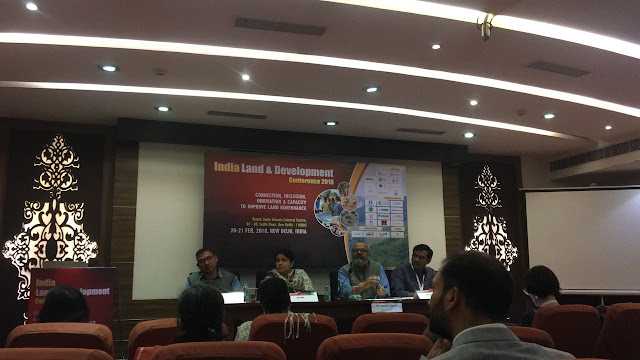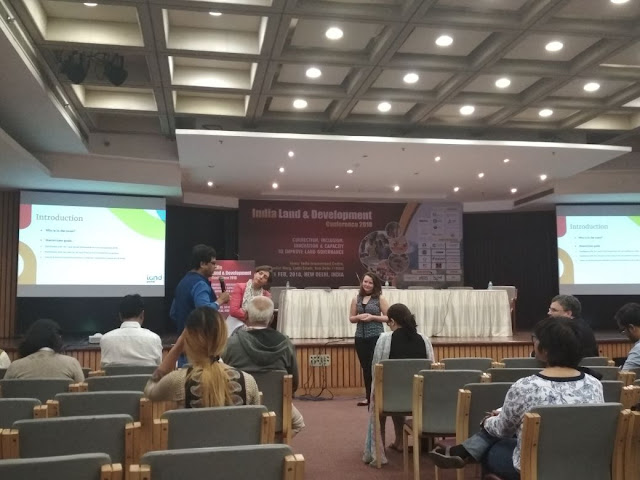 |
| Dr. Arabinda Padhee moderating the Technical Session on Doubling Farm Income at ILDC 2018 - Day 3 |
Land tenure security & women land rights are two critical issues to
raise crop productivity as well as income of cultivators. With this argument
Dr. Arabinda Padhee, Director,
Country Relations, ICRISAT initiated the session “Tenure Security and Doubling Farm Income” which is the priority
vision of Government in India expected to achieve by 2022. Political will from both Central Government and State Governments is the key to achieve this vision.
SS Meenakshi Sundaram, distinguished and experience bureaucrat stressed
that "land tenure security of farmers is critical for doubling farm income".
States have to play an active role with the external supervision of Government of India to implement land reforms, which will be the basis for agriculture
development in the country. Repackaging
agriculture to make it look lucrative and use of commercial standards
for farmers would help to hike farmer's income.
Dr. Suresh Pal of NIAP argued that updating land records and tenure security for tenant farmers are critical for
doubling farmer’s income. Property
right is critical for effective agricultural development. The role of States in land reforms is perquisite for agricultural development. At the same time, ensuring women property rights are essential to enhance farm income. He narrated the case of women collectives in Kerala actively taken up land tilling successfully.
Mr. Vinod
Agrawal, former Additional Chief Secretary, Govt. of Andhra Pradesh highlighted the inefficiency of present
policies to tackle land reforms, as the land holdings have shrinked
considerably. Only 1.3% of the GDP growth has been attributed to more secure
land titling. The current Indian system does
not allow to conclusively identify the land property owner, limiting the crucial
investment in land. Land leasing is banned in most States, but informal tenancy
is rife because many land owners do not want to cultivate, while
others want to. He recommended to initiate the second round of land reforms by the States with the help of technological solutions to reduce the
efforts in terms of cost and time.
Absence of tenure security and land rights, farmers are unable to access institutional credit and minimum support price for their produces. Both are practical barriers in achieving the dream of doubling farmer's income. This was quoted by Jayesh Bhatia, Director, NRMC sharing his recent study in the state of Rajasthan. Dream of doubling India farmers'
income by 2022 appears difficult to achieve without proper tenure security and
land rights.
Concluding the session; Dr. Padhee shared the recommendation of the expert committee presented before the Prime Minister of India on 20th February 2018 during the Agriculture Conference that "land leasing must be legalized and
liberalized Land
leasing & land rights
are two critical issues to address 'Doubling farm Income". As per legal framework the States have a greater role to play as agriculture and land being State
subjects.








